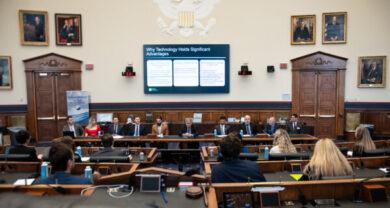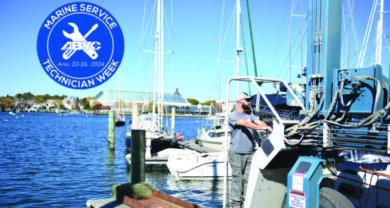Oil and water
As short supply and strong demand pushed oil prices well above $50 a barrel this spring, some analysts predicted a “super spike” was on the way that could push the price to $105 per barrel in the not-to-distant future.
Fortunately that prediction has not yet come to pass, and most doubt it will. But with the U.S. Department of Energy’s Energy Information Administration forecasting gasoline prices to reach an average of $2.28 per gallon nationwide — 38 cents above the national average in the summer of 2004 — there is some concern in the boating industry about the impact those prices will have on boat usage.
The EIA predicts motor gasoline demand to grow by 1.8 percent this summer, averaging 9.33 million barrels per day, due to increases in the driving-age population and per-capita vehicle miles traveled. However, refinery output increases are not expected to keep up with demand growth due to limited growth in refining capacity.
The Energy Information Administration says inventories are starting the season at higher levels than last year, but days’ supply (beginning inventories divided by demand per day) has generally not risen significantly since 2003 and is projected to stay below historical averages through 2006.
Crude oil prices, as represented by the West Texas Intermediate benchmark, surpassed $57 per barrel in early April. The EIA says WTI prices are projected to average $56.62 per barrel (135 cents per gallon) for the summer, up from $41.12 per barrel last summer.
Historic highs nowhere near
But despite the recent rise, prices at the pump would still have to increase considerably if historical highs are to be reached. In today’s dollars, gasoline prices peaked in March 1981 at $3.12 per gallon, according to the EIA.
National Marine Manufacturers Association president Thom Dammrich believes prices would probably have to reach those levels again before they would have a significant impact on the industry.
“I think it would have to get well over $3 a gallon on average before it would be a problem,” Dammrich says. “Think about someone with a small boat who goes out for a weekend, how many gallons of gas are they going to use, 20, 30, 50? Fifty gallons of gas, at 40 cents a gallon more, it costs them what, $20? Are you not going to do your whole weekend activity because it costs you $20 more?
“Even if you own a big boat, if you’re in a half million or a million -dollar boat and you use 100 gallons or 200 gallons, at 200 gallons that’s $80 more. If you have a million-dollar boat, is $80 more really going to effect your usage?”
And a study conducted by the Recreational Marine Research Center last August bears that point of view out.
The study, entitled “The Impact of Fuel Prices on Recreational Boating During Summer 2004,” was overseen by RMRC co-director Dr. Ed Mahoney of Michigan State University. It took the form of a survey that was sent out to members of the RMRC’s National Boater Panel, a group of nearly 10,000 boaters from around the country, who were asked several questions to determine whether last summer’s gasoline prices had limited their boat usage.
More than 4,300 boaters responded, with 56 percent saying the price of fuel had not influenced their boating activities, despite the fact that the average price of gasoline last July, when boat usage was heaviest, was $1.99 at gas stations and $2.45 at marinas.
The survey found that, for boaters who bought gasoline at marinas, the average purchase was 107 gallons, which cost them $262, compared to an average purchase of 28 gallons, costing $56, at gasoline stations. Prices of gasoline varied across the country with the highest prices in California, Washington and Oregon and the lowest in Southern states.
Of those respondents who said fuel prices did impact their boat usage last summer, 70 percent said they took fewer boating trips as a result, and 53 percent said they reduced the length of their trips.
So while the current price of fuel may not have a major impact on the boating industry this summer, prices that exceed predicted highs could cause a few ripples.
Secretary of the Interior Gale Norton noted as much when she spoke to the industry leaders gathered for the American Boating Congress in Washington D.C. this May.
“Energy should not be so expensive that people cannot travel to their favorite boating spots,” Norton told the group. “We recognize the harm it is causing boaters, anglers and tourism in our country.”
Just how harmful those prices become remains to be seen.




